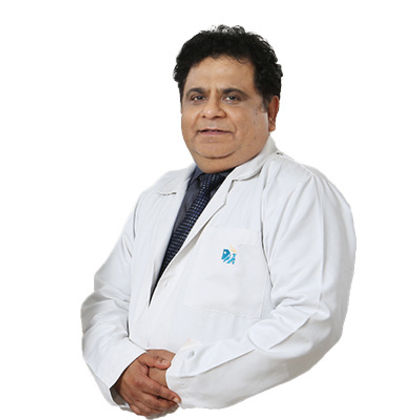What Leads to Acne: Unmasking the Root Causes
Uncover the root causes of acne, from hormonal fluctuations and genetics to diet and skincare habits. This comprehensive guide unmasks what truly leads to breakouts and how you can take control of your skin's health.

Written by Dr. M L Ezhilarasan
Reviewed by Dr. Dhankecha Mayank Dineshbhai MBBS
Last updated on 13th Jan, 2026

That dreaded morning surprise—a red, angry pimple right before a big event. If you've ever struggled with acne, you know it's more than skin deep; it can affect your confidence and wellbeing. But have you ever stopped to ask why? Acne isn't a simple case of "dirty skin" or eating too much chocolate. It's a complex skin condition with a multitude of contributing factors. This article will be your guide, unmasking the true root causes of acne, from the biological processes happening beneath the surface to the external triggers that can make it worse. We'll delve into the science of sebum, bacteria, and hormones, separate fact from fiction, and empower you with the knowledge to understand your skin better.
Consult a General Physician for the best advice
The Acne Basics: More Than Just a Pimple
At its core, acne is a disorder of the pilosebaceous unit—fancy words for your skin's hair follicles and the attached oil glands (sebaceous glands). These units are everywhere on your body except your palms and soles, but they are most concentrated on your face, chest, and back, which is why acne commonly appears in these areas.
Understanding Your Skin's Structure: The Follicle and Pore
Imagine each hair follicle as a tiny canal. Lining this canal are skin cells (keratinocytes) that are constantly shedding. At the base of the canal is the sebaceous gland, which produces an oily, waxy substance called sebum. Sebum is not the enemy; it's crucial for keeping your skin hydrated and protected. Normally, dead skin cells and sebum travel up the follicle and exit through the pore onto the skin's surface. The problem begins when this process goes awry.
The Four Key Players in Acne Development
Modern dermatology identifies four primary, interconnected factors that lead to an acne lesion:
1. Excess sebum production
2. Buildup of dead skin cells clogging the pore
3. Presence of the bacteria Cutibacterium acnes (C. acnes)
4. Inflammation
The Primary Culprits: The Acne Formation Process
Sebum Overproduction: When Your Skin Gets Too Oily
The first domino to fall is often a surge in sebum. This is heavily influenced by hormones, specifically androgens like testosterone. During puberty, androgen levels rise, signaling the sebaceous glands to grow larger and produce more oil. This is why acne is so prevalent among teenagers. However, hormonal fluctuations throughout life (menstruation, pregnancy, stress) can cause these same glands to go into overdrive at any age.
Clogged Pores: The Birth of a Comedone
With excess sebum production, the shed dead skin cells inside the follicle can stick together instead of being carried away. This mixture of sticky cells and oil forms a plug, trapping everything inside. This plugged follicle is called a comedone. If the plug is closed and covered by a thin layer of skin, it appears white (a whitehead). If the plug is open and the contents are exposed to air, they oxidize and turn dark (a blackhead)—it’s not dirt!
Bacterial Party: The Role of C. Acnes
Cutibacterium acnes is a bacterium that naturally lives on everyone's skin. It usually minds its own business. But inside a clogged, oilfilled follicle, it finds a perfect breeding ground—an all-you-can-eat buffet of sebum. The bacteria multiply rapidly, feeding on the trapped oil.
Inflammation: The Redness and Swelling
As the C. acnes bacteria feast, they produce waste products and enzymes that irritate the lining of the follicle. Your body's immune system recognizes this as a threat and launches an attack, sending white blood cells to the area. This immune response causes the redness, swelling, heat, and pain we associate with inflammatory acne: papules (red bumps), pustules (whiteheads with a red ring), and the deeper, more severe nodules and cysts.
Beyond the Basics: Secondary Factors That Trigger Acne
While the fourstep process is the engine, several other factors can pour gasoline on the fire.
Hormonal Fluctuations and Acne
Hormones are the master conductors of sebum production.
Puberty, Menstruation, and PCOS
The surge of androgens during puberty is the classic trigger. For women, the dip in estrogen before a menstrual period can allow androgens to have a more pronounced effect, leading to monthly breakouts. Conditions like Polycystic Ovary Syndrome (PCOS) cause chronically high androgen levels, often resulting in persistent hormonal acne along the jawline and chin.
Stress and the Cortisol Connection
When you're stressed, your body produces more cortisol and other stress hormones. These can also stimulate your oil glands to produce more sebum, creating a perfect environment for acne to flourish. This creates a vicious cycle where acne causes stress, which in turn causes more acne.
Genetics and Family History
If both your parents had acne, you are more likely to develop it too. Genetics can influence how sensitive your sebaceous glands are to hormones, how easily you shed skin cells, and the strength of your inflammatory response.
The Diet Debate: Does Food Cause Acne?
The link is no longer a myth. Research shows that diet plays a supporting role, though it's not the primary cause for everyone.
High-Glycemic Foods and Dairy
Foods with a high glycemic index (white bread, sugary drinks, chips) cause a rapid spike in blood sugar and insulin. Insulinlike growth factor 1 (IGF1) can increase sebum production. Some studies also suggest that skim milk and dairy products may influence hormones and insulin levels in a way that can exacerbate acne in certain individuals.
Skincare and Cosmetics: Friend or Foe?
What you put on your face matters. Heavy, oily creams, foundations, and pomades can physically clog pores. These are known as comedogenic products. Conversely, overly harsh skincare—like scrubbing too hard or using drying alcohols—can strip the skin's barrier, triggering inflammation and even more oil production as your skin tries to compensate.
External Triggers: Friction and Environment
Constant friction or pressure on the skin—from things like helmet straps, tight collars, or frequently holding a phone against your cheek—can cause a type of acne called acne mechanica. Humid environments can also promote sweating and oiliness, creating a favorable setting for breakouts.
Quick Takeaways: Key Points to Remember
- Acne is caused by a combination of excess oil, dead skin cells, bacteria, and inflammation.
- Hormones are the primary driver of oil production, affecting not just teens but adults too.
- Not all acne is caused by dirt; blackheads are oxidized oil, not trapped grime.
- Genetics play a significant role in your susceptibility to acne.
- Diet and lifestyle factors (like stress and skincare products) can significantly influence breakouts.
- Picking or popping pimples worsens inflammation and can lead to scarring.
- If over-the-counter solutions aren't working after 68 weeks, it's time to see a professional.
Busting Common Acne Myths
- Myth: Eating chocolate and greasy foods causes acne.
- Fact: While highsugar and highdairy diets can be triggers for some, a single greasy meal is unlikely to cause a breakout. The grease on your skin from cooking, however, can mix with skin debris and clog pores.
- Myth: Acne is caused by poor hygiene.
- Fact: Overwashing can be just as bad as underwashing. It irritates the skin and can worsen acne. Gentle cleansing twice a day is sufficient.
- Myth: Popping a pimple will make it go away faster.
- Fact: Popping forces bacteria and debris deeper into the skin, increasing inflammation, infection, and the chance of permanent scarring.
When to Seek Professional Help?
Mild acne can often be managed with a consistent over-the-counter routine. However, you should consider consulting a dermatologist if:
- Your acne is severe, painful, or cystic.
- OTC products haven't improved your skin after two months.
- Your acne is causing emotional distress or scarring.
- You suspect a hormonal imbalance like PCOS.
If your acne is persistent, painful, or affecting your self-esteem, consult a dermatologist online with Apollo24|7 for a personalized evaluation and treatment plan. They can prescribe stronger topical treatments, oral medications like antibiotics or birth control, or advanced therapies like isotretinoin for severe cases.
Conclusion
Understanding what leads to acne is the first and most powerful step toward managing it. It’s a multifaceted condition rooted in genetics, biology, and influenced by lifestyle. By unmasking the causes—from hormonal shifts and bacterial growth to dietary choices and skincare habits—you can move beyond frustration and guesswork. Remember, effective management is a marathon, not a sprint. It requires patience, consistency, and sometimes professional guidance. Be kind to your skin and yourself throughout the process. If your journey feels overwhelming, know that effective help is available and clearer skin is an achievable goal.
Consult a General Physician
Consult a General Physician

Dr D M Karthik
General Practitioner
4 Years • MBBS, Fellowship in Diabetes Mellitus, Advance certificate in Diabetes Mellitus, Derma Nutrition Certification
Visakhapatnam
Apollo 24|7 Clinic - Andhra Pradesh, Visakhapatnam

Dr. Shaik Abdul Kalam
General Practitioner
3 Years • MD (Physician)
Visakhapatnam
Apollo 24|7 Clinic - Andhra Pradesh, Visakhapatnam
(150+ Patients)

Dr. Rajib Ghose
General Physician/ Internal Medicine Specialist
25 Years • MBBS
East Midnapore
VIVEKANANDA SEBA SADAN, East Midnapore

Dr. Anand Misra
General Physician/ Internal Medicine Specialist
14 Years • MBBS, DNB
Mumbai
Apollo Hospitals CBD Belapur, Mumbai

Dr. R Gopakumar
Internal Medicine/ Covid Consultation Specialist
31 Years • MBBS, MD(general medicine
Angamaly
Apollo Hospitals Karukutty, Angamaly
(25+ Patients)
Consult a General Physician for the best advice

Dr D M Karthik
General Practitioner
4 Years • MBBS, Fellowship in Diabetes Mellitus, Advance certificate in Diabetes Mellitus, Derma Nutrition Certification
Visakhapatnam
Apollo 24|7 Clinic - Andhra Pradesh, Visakhapatnam

Dr. Shaik Abdul Kalam
General Practitioner
3 Years • MD (Physician)
Visakhapatnam
Apollo 24|7 Clinic - Andhra Pradesh, Visakhapatnam
(150+ Patients)

Dr. Rajib Ghose
General Physician/ Internal Medicine Specialist
25 Years • MBBS
East Midnapore
VIVEKANANDA SEBA SADAN, East Midnapore

Dr. Anand Misra
General Physician/ Internal Medicine Specialist
14 Years • MBBS, DNB
Mumbai
Apollo Hospitals CBD Belapur, Mumbai

Dr. R Gopakumar
Internal Medicine/ Covid Consultation Specialist
31 Years • MBBS, MD(general medicine
Angamaly
Apollo Hospitals Karukutty, Angamaly
(25+ Patients)
More articles from acne
Frequently Asked Questions
Why do I still get acne as an adult?
Adult acne, particularly in women, is very common. It's often driven by hormonal fluctuations related to the menstrual cycle, stress, pregnancy, menopause, or conditions like PCOS. It can also be a reaction to skincare or hair products.
Does stress really cause acne?
Yes, high stress levels can worsen acne. Stress increases cortisol production, which can stimulate oil glands and increase inflammation, creating a better environment for breakouts to occur.
What is the difference between hormonal acne and regular acne?
'Hormonal acne' isn't a medically distinct type but rather describes acne that is primarily driven by hormonal fluctuations. It typically presents as deep, painful cysts along the jawline, chin, and lower cheeks and often flares up cyclically.
Can my workout routine cause acne?
It can contribute if sweat is left to sit on the skin mixed with bacteria and oils. This is known as acne mechanica. To prevent it, shower promptly after sweating, wear clean, breathable clothing, and wipe down shared gym equipment.
If I have oily skin, will I always have acne?
Not necessarily. While oily skin is a major risk factor for acne, not everyone with oily skin gets it, and some people with dry skin can still experience breakouts. It's the combination of oil, dead skin cells, and bacteria within the follicle that causes the problem, not oil on the surface alone.

.webp)